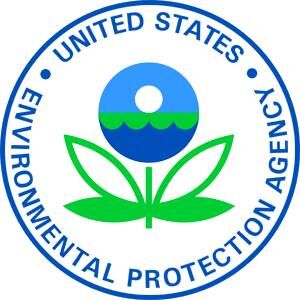Environmental Protection Agency and the Department of Army have announced intentions to revise the definition of “waters of the United States.”
They contend it can help protect the nation’s water sources that support public health, environmental protection, agricultural activity and economic growth. The EPA declaration is requesting the remanding of the 2020 Navigable Waters Protection Plan that was endorsed by former President Donald Trump’s administration.
“After reviewing the Navigable Waters Protection Rule as directed by President (Joe) Biden, the EPA and Department of the Army have determined that this rule is leading to significant environmental degradation,” said EPA Administrator Michael S. Regan. “We are committed to establishing a durable definition of ‘waters of the United States’ based on Supreme Court precedent and drawing from the lessons learned from the current and previous regulations, as well as input from a wide array of stakeholders, so we can better protect our nation’s waters, foster economic growth, and support thriving communities.”
“Communities deserve to have our nation’s waters protected. However, the Navigable Waters Protection Rule has resulted in a 25 percentage point reduction in determinations of waters that would otherwise be afforded protection,” said Acting Assistant Secretary of the Army for Civil Works Jaime A. Pinkham. “Together, the Department of the Army and EPA will develop a rule that is informed by our technical expertise, is straightforward to implement by our agencies and our state and Tribal co-regulators, and is shaped by the lived experience of local communities.”
Upon review of the Navigable Waters Protection Rule, the agencies have determined that the rule is significantly reducing clean water protections. The lack of protections is particularly significant in arid states, like New Mexico and Arizona, where nearly every one of over 1,500 streams assessed has been found to be non-jurisdictional. The agencies are also aware of 333 projects that would have required Section 404 permitting prior to the Navigable Waters Protection Rule, but no longer do.
As a result of these findings, the Department of Justice is filing a motion requesting remand of the rule. Today’s action reflects the agencies’ intent to initiate a new rulemaking process that restores the protections in place prior to the 2015 WOTUS implementation, and anticipates developing a new rule that defines WOTUS and is informed by a robust engagement process as well as the experience of implementing the pre-2015 rule, the Obama-era Clean Water Rule, and the Trump-era Navigable Waters Protection Rule.
The agencies’ new regulatory effort will be guided by the following considerations:
• Protecting water resources and our communities consistent with the Clean Water Act.
• The latest science and the effects of climate change on our waters.
• Emphasizing a rule with a practical implementation approach for state and Tribal partners.
• Reflecting the experience of and input received from landowners, the agricultural community that fuels and feeds the world, states, Tribes, local governments, community organizations, environmental groups, and disadvantaged communities with environmental justice concerns.
U.S. Rep. Frank Lucas, R-OK, says the reversal hurts rural America.
“Farmers, ranchers, and landowners of Oklahoma have long been good stewards of their land and the environment. After hand-tying regulation of the Obama-era WOTUS rule, President Trump and EPA Administrator (Andrew) Wheeler’s Navigable Waters Protection Rule provided long-overdue certainty and clarity for landowners. The Biden Administration intent to reverse the Navigable Waters Protection Rule hurts those who call rural America home and once again places stringent burdens on America’s farmers, ranchers, businesses, and rural communities,” Lucas said. “I implore the Biden administration to reconsider the dismantling of the current policy and keep intact the rule that has given clarity to rural communities across the United States.”
The 2015 Waters of the United States rule significantly expanded the definition of "waters of the United States" and gave the federal government authority to regulate almost any waters; including streams, ditches, ponds, and creeks, Lucas said. The Navigable Waters Protection Rule, finalized by the Trump administration in April 2020, revised the definition of WOTUS and reversed this overreach, bringing back a balance between federal and state jurisdiction under the Clean Water Act.
U.S. Sen. Roger Marshall, R-KS, and a member of the Senate Agriculture Committee, called the decision an overreach that is the wrong approach.
“This is the Administration’s attempt to revive the Obama era WOTUS rule which was already blocked by the courts, and is further proof of the clear disconnect between D.C. bureaucrats and those who work the land day in and day out,” Marshall said. “Since coming to office, I have worked alongside our farmers, ranchers, and rural landowners to protect and improve our land and water and roll back one-size-fits-all federal regulations that impact Kansans’ ability to effectively care for the crops and livestock. This level of federal overreach is not only uninformed, but unacceptable.”
National Corn Growers Association President John Linder expressed his disappointment the decision.
“The current rule provided long-overdue certainty and clarity for farmers about their obligations under the Clean Water Act. Clean water is important to America’s corn farmers, and we are committed to protecting our environment and the communities where we live and work,” Linder said. “We are dedicated to protecting our water resources for future generations and will work with the EPA to implore that they recognize the efforts of agriculture and not return to an overly burdensome regulation.”
Sign up for HPJ Insights
Our weekly newsletter delivers the latest news straight to your inbox including breaking news, our exclusive columns and much more.
Dave Bergmeier can be reached at 620-227-1822 or [email protected].



